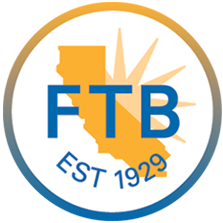Form 990-T Schedule A
Excise Tax Forms
Employment Tax Forms
Information Returns
Extension Forms
FinCEN BOIR
General
Introduction
Tax-exempt organizations with unrelated business income (UBI) must file Form 990-T, Exempt Organization Business Income Tax Return. This form helps the IRS understand and tax income earned from activities outside the organization's charitable mission and calculate the tax owed on that business income.
Form 990-T Schedule A is a supplementary document to report the details of each unrelated trade or business. Let’s learn more about Schedule A and its purpose in this resource article.
Table of Contents
What is Form 990-T Schedule A?
Form 990-T Schedule A is a supplementary schedule that breaks down unrelated business income (UBI) for each separate trade or business conducted by a tax-exempt organization.
It provides a detailed breakdown of income, expenses, deductions, and taxable income for each unrelated activity, allowing for an accurate calculation of the total tax owed on Unrelated business income.
Who must file 990-T Schedule A?
Any tax-exempt organization that has unrelated business income from one or more unrelated trades or businesses must file Form 990-T Schedule A. Unrelated business activities are defined as those that are not substantially related to the organization's exempt purpose.
This includes various types of tax-exempt entities such as:
- Charitable organizations
- Religious organizations
- Educational institutions
- Other nonprofit entities
If an organization engages in multiple unrelated business activities, it must complete a separate Schedule A for each business.
When is Form 990-T Schedule A Due?
The deadline to file IRS Form 990-T is the 15th day of the 5th month after the organization's accounting period ends. If your organization follows the calendar tax year, the deadline for filing the 990-T return is May 15.
An employee's trust defined in section 401(a), an IRA (including SEPs and SIMPLEs), a Roth IRA, a Coverdell ESA, or an Archer MSA must file Form 990-T by the 15th day of the 4th month after the end of its tax year.
Ready to attach Schedule A along with your 990-T return with TaxZerone?
Make the e-filing process simple and hassle-free by clicking the button below.
Choose TaxZerone to complete your 990-T Schedule A filing
TaxZerone is your trusted IRS-authorized e-file service provider that provides instant updates on your Form 990-T filing status.
With TaxZerone as your e-file service provider, you'll get:
- Instant Status Updates: Know exactly where your return stands with real-time filing status notifications.
- Seamless E-Filing: Our user-friendly platform makes filing a breeze. Plus, our support team is always available to guide you through every step.
- Free Error Correction & Resubmission: Made a mistake? No problem! Fix any errors flagged by the IRS and resubmit your 990-T return at no extra cost.
Here's how your Form 990-T return with Schedule A attachment is transmitted to the IRS - just 3 simple steps!
- Provide Organization Details -Choose the tax year for which you want to file a return, and provide your organization’s details.
- Preview Schedule A - Attach Schedule A to report each unrelated business activity and preview the information provided in the return for accuracy before transmitting.
- Transmit to the IRS - Transmit Schedule A along with your 990-T Return to the IRS and get the acceptance in just a few hours.
Complete your Schedule A filing requirements and e-file your Form 990-T with TaxZerone. It’s as simple as that!
Get StartedCommonly Asked Questions
1. Is there a minimum amount of UBI that requires filing Form 990-T?
2. What if my organization has minimal UBI?
Organizations with gross income of less than $1,000 from unrelated business activities generally do not need to file Form 990-T.
However, if the organization has even a small amount of UBI from multiple unrelated businesses, they may still need to file Form 990-T and complete separate Schedule A's for each activity.




